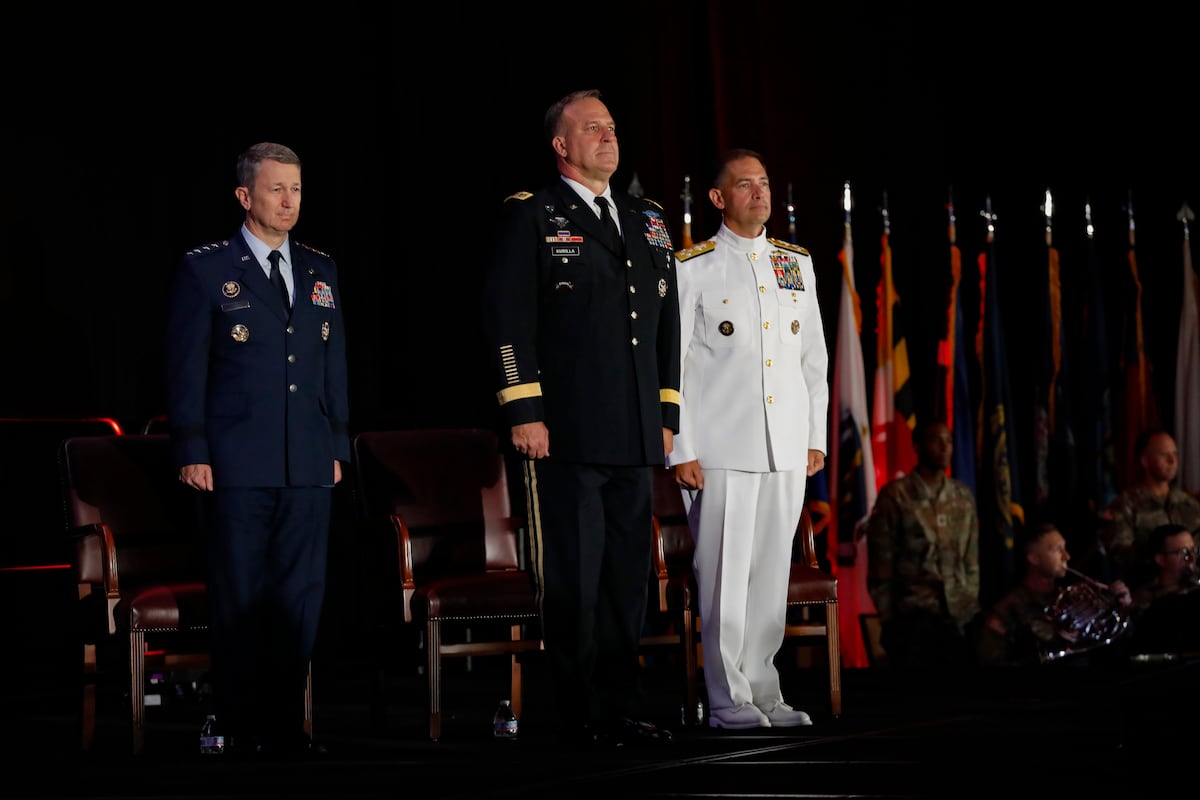Leadership Transition Within U.S. Central Command
On Friday, U.S. Central Command (CENTCOM) experienced a significant leadership transition as U.S. Army General Michael Erik Kurilla stepped down from his position, making way for U.S. Navy Admiral Brad Cooper. This change comes at a crucial time as the region grapples with escalating tensions and complex security challenges.
New Command Dynamics
Admiral Cooper, who previously held the role of deputy commander at CENTCOM, was nominated by President Donald Trump on June 4 and received Senate confirmation shortly thereafter. His appointment marks only the second time a Navy admiral has commanded CENTCOM, with the first being Admiral William Fallon, who led the organization in 2007.
In a statement during the change of command ceremony held at the Tampa Convention Center in Florida, Cooper expressed gratitude for the opportunity to lead U.S. forces. He emphasized the critical mission of enhancing security and stability across 21 countries in the Central Command’s jurisdiction, which predominantly includes the Middle East.
Strategic Context and Challenges
Cooper is entering his command during a turbulent period, particularly as the U.S. administration seeks to mediate a ceasefire agreement between Israel and Hamas amidst a rising death toll in Gaza. Current reports indicate alarming human costs, with recent figures suggesting that 60,000 Gazans have died since the military escalation began in 2023, which includes a tragic tally of approximately 18,500 children.
Key challenges for Admiral Cooper include:
- Mitigating Hostility in the Region: The ongoing conflict has a direct impact on U.S. military operations and alliances within the area.
- Addressing Iranian Activities: The U.S. is also attempting to negotiate with Iran regarding its uranium enrichment program, which poses a long-term threat to regional and global security.
- Containment of Violent Non-State Actors: The threat from militias and terrorist organizations like ISIS remains a persistent challenge that requires concerted military and diplomatic efforts.
Legacy of General Kurilla
General Kurilla’s tenure, which began in April 2022, was marked by pivotal military operations aimed at disrupting extremist networks and solidifying U.S. influence in the region. Notable operations include:
- Operation Rough Rider: Initiated on March 15, this operation targeted Iranian-supported Houthi rebels, culminating in the largest airstrike launched from a U.S. aircraft carrier in history, where over 1.1 million pounds of munitions were deployed.
- Operation Midnight Hammer: In a precision strike on June 22, B-2 stealth bombers targeted three Iranian nuclear sites with 30,000-pound bunker-buster munitions, showcasing U.S. capabilities in rapid response and high-stakes operations.
Reflecting on his leadership, Kurilla expressed his profound honor in commanding U.S. service members, highlighting the sacrifices and professionalism they exhibited during challenging times.
Conclusion
As Admiral Cooper assumes command amid an increasingly complex geopolitical landscape, his leadership will be pivotal in navigating urgent security concerns and reinforcing U.S. commitments to its allies. His track record within CENTCOM will be scrutinized as he addresses the immediate threats facing the region and lays the groundwork for long-term stability. The defense community will closely monitor Cooper’s strategies and the ramifications on U.S. foreign policy and military operations in the Central Command area of responsibility.



